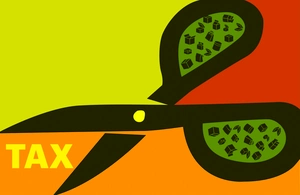More than 1,200 government representatives, academics, and global auto leaders like Suzuki Motor chairman Osamu Suzuki were at NITI Aayog’s Global Mobility Summit last week, all expecting clarity on the future of mobility in India, and a policy on electric and hybrid vehicles. Despite the hype, the summit didn’t end the long wait for a government policy.
Several announcements leading up to the event suggested that Prime Minister Narendra Modi would announce the long-awaited FAME II [Faster Adoption and Manufacturing of (Hybrid &) Electric Vehicles] scheme—the government’s push towards electric mobility to curb rising pollution levels and speed up India’s transition to clean energy—at the summit on September 7.
But there were no major announcements made on India's clean mobility roadmap, though, in his opening remarks, the PM promised a policy soon.
“We will soon put in place a stable policy regime around electric and other alternative fuel vehicles. Policies will be designed as a win-win for all, and enable huge opportunities in the automotive sector,” Modi said. He also indicated that the focus will be on reducing the cost of batteries and not on vehicles.
NITI Aayog’s statement ahead of the event had indicated “a string of policy announcements”. Rajiv Kumar, vice chairman, NITI Aayog, had told reporters that the talks at the summit would help "cut across the silos in policies that we have in the country". However, by the time the summit came to an end, whispers of disappointment seemed to be doing the rounds in closed circles.
An automobile analyst, who wished to remain anonymous, said: "Many were expecting full clarity on the e-mobility roadmap going ahead, that did not happen, so they were disappointed." Although, he added, such brainstorming sessions are important in the endeavour to put a comprehensive policy in place.
Another auto expert said he believes the policy announcement is being delayed because of a decision over subsidies.
According to industry experts, there were two kinds of policies expected—one for hybrids and another for electric vehicles. “But the government is not keen on hybrids. FAME II was expected to go for hybrids also. That might have changed at the last moment. It’s just the same before and after the much hailed Move summit which was such a downer,” said a Bengaluru-based startup founder who works in the electric mobility space, requesting anonymity.
Union Minister Piyush Goyal’s comments also suggested that the government is not keen on promoting hybrids. “The companies promoting hybrid vehicles want us to settle for the second best. The sad part is that the campaign is being run by companies which don't make electric cars. To sell their hybrid cars, they are willing to compromise with the best,” he said at the summit.
According to a recent Times of India report, the government may rework the FAME policy and the proposed subsidy would be given for batteries to make them more affordable.
The policy, if and when announced, will be a big blow to automakers who are expecting the government to share the cost of the vehicle until it becomes commercially viable.
An industry insider, who did not wish to be named, said: "There has been no clarity yet on the specific steps and guidelines for electrification going ahead. Without this clarity the industry will not be able to move forward, fearing sudden changes in the government's stance or regulations in the future."
He added that other countries which have seen some success on the electrification of their automobiles have done so on the back of clear and attractive incentives from the government.
The launch of FAME II has already suffered many delays. The first phase was initially launched for two years till March 31, 2017 but was extended twice for six months up to March 31, 2018. It was again delayed by six months in April and is officially effective till September-end.










Leave a Comment
Your email address will not be published. Required field are marked*